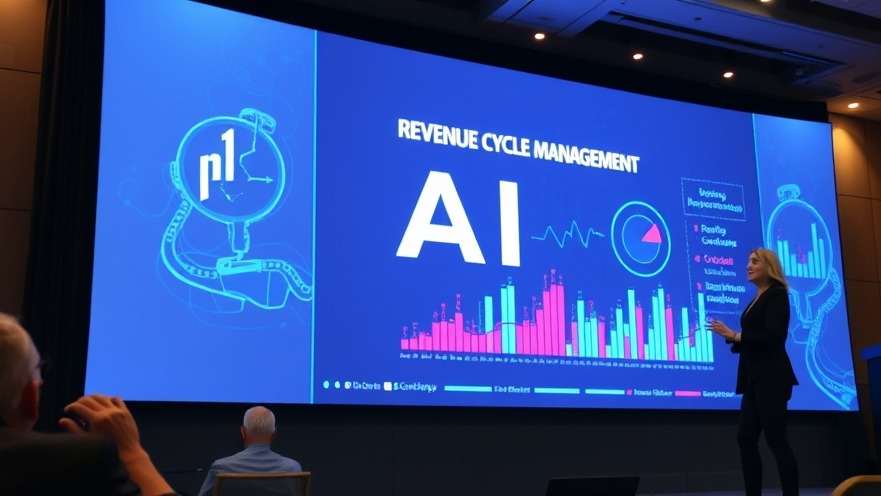
Understanding the Role of AI in Revenue Cycle Management
As healthcare finance leaders gear up for the HFMA Annual Conference, the buzz around Artificial Intelligence (AI) continues to grow. With shrinking margins and rising operational costs, the integration of AI into revenue cycle management (RCM) is expected to be a major focal point.
Challenges of Modern Reimbursement Landscapes
Today’s healthcare organizations grapple with a complex reimbursement landscape, where traditional strategies no longer suffice. AI and robotic process automation (RPA) are emerging as vital solutions to these challenges. Healthcare leaders are eager to uncover how they can implement these technologies effectively to streamline processes, particularly in addressing claims denials that continue to escalate.
The Potential of AI to Transform Financial Experiences
Executives like Ryne Natzke of TrustCommerce emphasize the potential of AI in improving patient financial experiences. As AI-driven tools begin reshaping product offerings, there’s a clear recognition of their ability to enhance operational efficiencies. The improvement in patient interactions and overall revenue cycles hinges upon the correct application of these technologies.
Maximizing ROI with AI Implementation
Healthcare organizations recognize the urgency to effectively deploy AI tools to maximize ROI. Michelle Durbin from Ventus highlights that while many providers understand the potential of AI, practical guidance on maximizing outcomes is lacking. Research indicates that a staggering 65% of denials are left unaddressed, showcasing a considerable revenue loss that can be mitigated through intelligent automation.
The Importance of Collaboration
As stated by Frank Forte of EnableComp, navigating the evolving reimbursement landscape requires strategic partnerships. The complexity of regulations necessitates collaboration with experts who can offer analytics and automation tools. By fostering these relationships, organizations can not only reduce denials but also achieve a more resilient revenue cycle.
Embracing Change: Future Trends in Healthcare Technology
Looking ahead, the shift towards AI in healthcare finance is not just a trend but a necessary evolution. Anurag Mehta from Omega Healthcare points out that 85% of surveyed executives believe AI will play a crucial role in enhancing RCM operations over the next five years. This significant consensus underscores the importance of adapting to technological advancements to ensure financial stability.
The Path Forward for Healthcare Leaders
As the HFMA Annual Conference approaches, leaders must equip themselves with knowledge and strategies surrounding AI and RCM. Adopting these innovations will not only address current challenges but also pave the way for sustainable growth in an increasingly competitive landscape. The key takeaway for practitioners is that proactive engagement in discussions regarding technology integration can drive positive change and financial performance.
In conclusion, healthcare practitioners must seize the opportunity presented by AI technologies at this year’s conference. Understanding its implications and potential applications will empower leaders to make informed decisions that benefit both their organizations and their patients.
 Add Row
Add Row  Add
Add 




Write A Comment